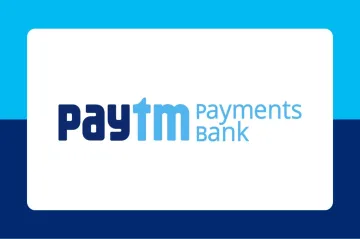Explained: How RBI restrictions on Paytm Payments Bank will impact customers
The central bank's directive restricts Paytm Payments Bank from accepting deposits or top-ups after February 29.
The Reserve Bank of India (RBI) last week ordered Paytm Payments Bank to not take any further deposits, conduct credit transactions, or carry out top-ups on any customer accounts, prepaid instruments, wallets, or cards for paying road tolls after February 29.
Paytm wallet users can use their funds until their balance is depleted, but they won't be able to add money after February 29. If the RBI's stance persists, top-ups for Paytm wallets will cease, and transactions through them will no longer be possible.
What is Paytm Payments Bank?
Paytm Payments Bank Limited (PPBL) is affiliated with One97 Communications Limited (OCL), with OCL holding a 49 per cent stake in PPBL. Vijay Shekhar Sharma owns a 51 per cent stake in the bank. PPBL began operations as a payments bank on May 23, 2017, offering digital banking services, including savings and current accounts, fixed deposits, wallets, UPI, and FASTag.
Paytm Wallet, a part of PPBL, dominates the segment, with users conducting 24.72 crore transactions worth over Rs 8,000 crore in December 2023.
Can you use Paytm services?
The RBI directive prohibits Paytm Payments Bank from accepting deposits or top-ups after February 29. However, customers can withdraw or use their balances without restrictions until they are exhausted. Paytm Wallet users can continue transactions until February 29 but cannot add money thereafter. Similar rules apply to PPBL accounts and associated services like FASTag and the National Common Mobility Card.
Are there any alternatives?
Several banks and non-banking entities offer wallet services, including Mobikwik, PhonePe, SBI, ICICI Bank, HDFC, and Amazon Pay. For FASTag services, customers can opt for over 37 authorised banks, such as SBI, HDFC, ICICI, IDFC, and Airtel Payments Bank.
Why did Paytm Payments Bank come under RBI scrutiny?
Issues such as non-KYC-compliant accounts, instances of single PANs used for multiple accounts, and transactions exceeding regulatory limits in minimum KYC prepaid instruments raised concerns about money laundering.
What has been Paytm's response?
While users can switch to other wallets and services, Paytm management is in discussions with the RBI to comply with directives. Paytm assures that its financial services like loan distribution, insurance distribution, and equity broking, unrelated to PPBL, will remain unaffected. Offline merchant payment network offerings will continue as usual.
How have the shares responded?
Paytm's stock witnessed a 10 per cent decline, hitting the lower circuit on February 5, extending the fall to over 42 per cent in the last three sessions. The stock has faced consecutive lower circuits since the RBI's curbs on its payments bank unit, dropping from Rs 761.4 to Rs 438.5 as of Monday morning.
(With PTI inputs)
